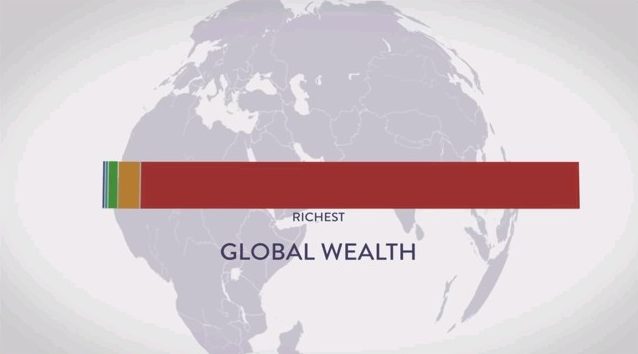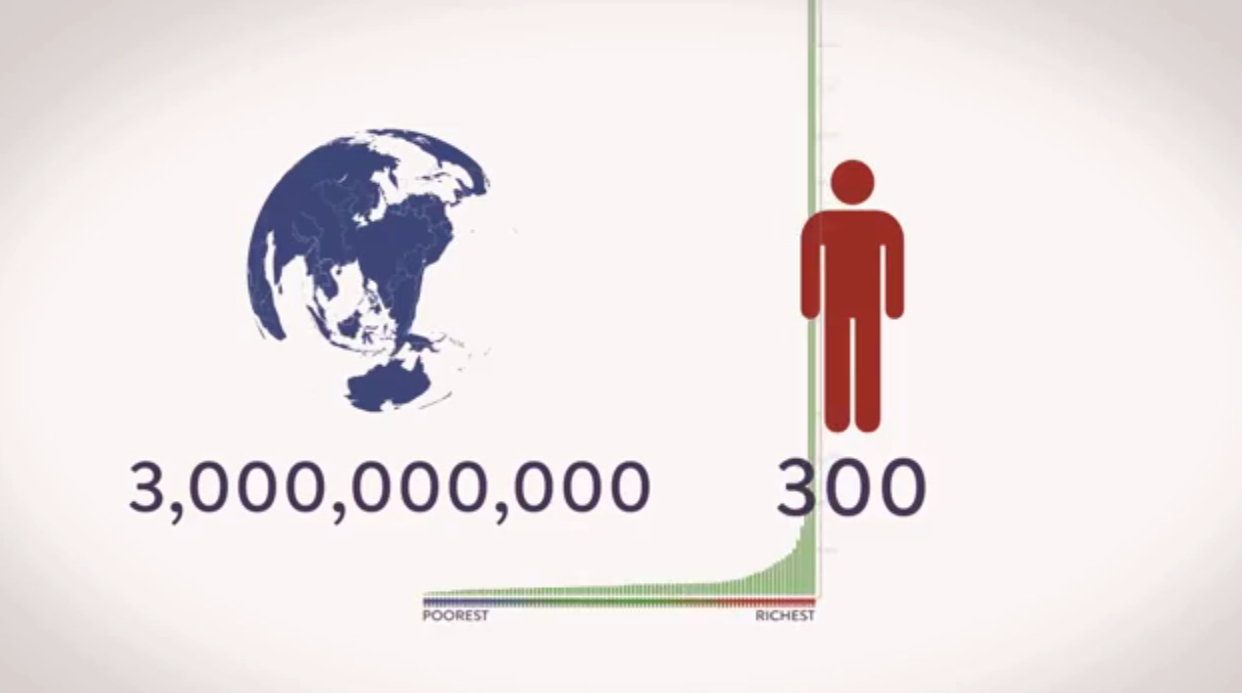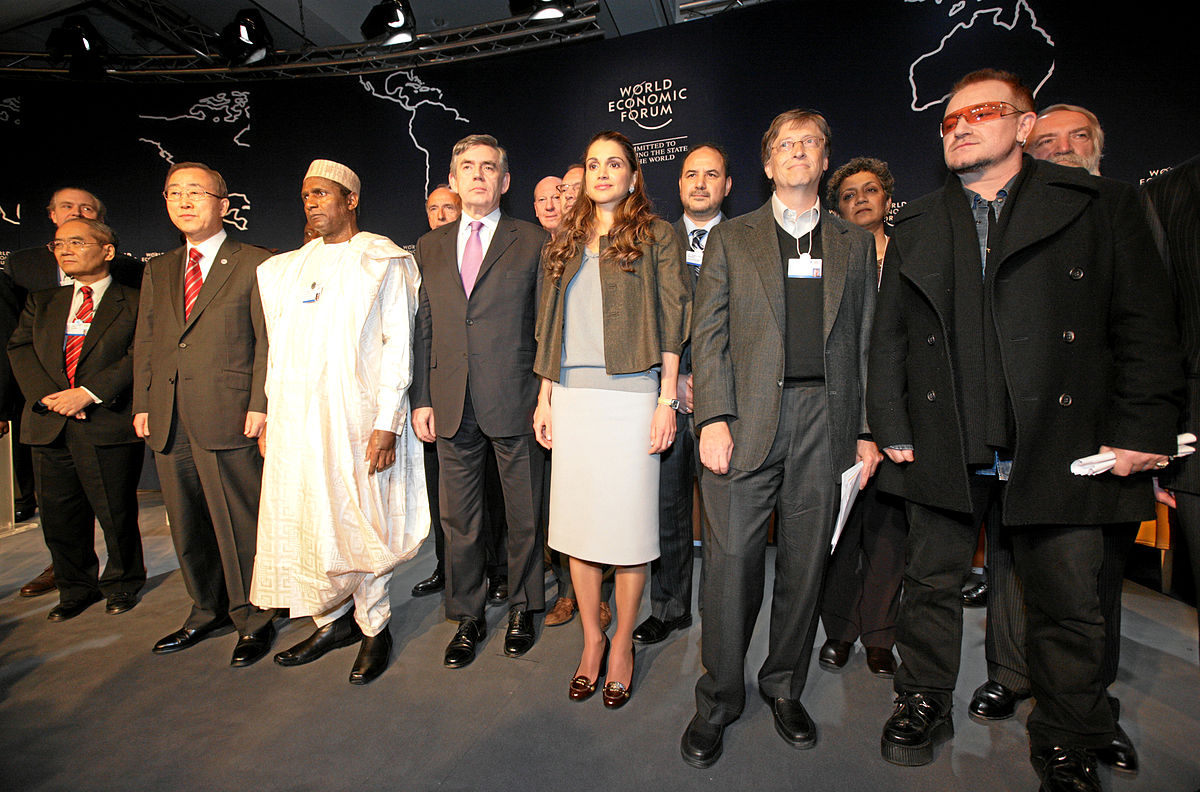
Starting on September 22, a new course will be set for the next 15 years of global economic development. Discussions of the Millennium Development Goals have officially come to an end and the United Nations just finalized their replacement on September 21, in what have been called the Sustainable Development Goals (SDGs). After conducting a detailed frame analysis of these SDGs, my colleagues and I have pinpointed a set of weak links in the logic that can be targeted to help humanity make the transition to a truly sustainable world. Others have noted problems with transparency and accountability in the process that led to these goals. But in reality the SDGs have a more fundamental problem: a blind spot in the thinking behind the process that warrants closer scrutiny and open discussion.
Read through the SDGs and you will note a complete absence of any reference to history prior to 1990 – the date chosen for comparisons of global poverty and hunger rates. What this means is that they are not characterizing how things came to be the way they are. More importantly, they are not showing us that a different kind of economic development is not only necessary, but is possible to achieve.
We can get to a future where no one starves to death and everyone has their basic needs met. But any claim that this future is attainable with development as usual is as poorly informed as the climate deniers who cling to the belief that business as usual will be good for the planet in the long run. My conflation of anti-science views is intentional. All evidence points to the reality that inequality went up and poverty increased as the economy grew larger in the last 40 years. The belief that more of this kind of unequal growth – 95 cents of every dollar going to the already well-off since the financial collapse of 2008 – will somehow bring poverty to an end belongs in the same place as other childish fantasies. It is no more real than Santa Claus or the Easter Bunny.
We need to be able to imagine that things can change at the foundational level of economic systems.
One major reason why the SDGs have nothing to say about the new paradigm is that they were forged in a process that presumed the current one is all we can hope for. Any student of history would be able to tell you that things haven’t always been this way. We have seen many epochs of social organization in the past and all have been replaced by something more fitting to the times that followed. Our task as a globalized civilization is to recognize this process of cultural evolution and see that late 20th century capitalism is nothing more than a pulse in a long history of crashing economic waves.
The earliest times were spent in bands as hunter-gatherers. The principal mode of economic activity was a kind of tribal egalitarianism where would-be dictators were kept in check by the group as a whole. This is what anthropologists like Christopher Boehm have discovered in their studies of Pleistocene economics. Later came the informal trade networks of nomadic people, followed by the rise of agrarian city-states with distinct social pyramids where strongman dictators ruled with an iron fist. This was followed by the rise of empires and dynastic orders, another form of social hierarchy where the masses remained poor and wealth was syphoned to the top.
This process of wealth accumulation achieved scientific precision in the transition from slave-powered empires to the more recent emergence of colonial nations built on the pillaging of conquered lands. It accelerated in the form of industrial capitalism during the last few hundred years, producing unimaginable wealth for growing portions of the industrial societies while producing inconceivable amounts of mass poverty for the much larger populations in those parts of the world where pillaging occurred as a counterpart to economic growth.
Seeing this parallel process of wealth creation alongside its shadowy counterpart ofpoverty creation is essential for getting at the root causes of inequality that exist in the world today. Market systems are made to syphon resources up the social ladder. Democratic governments are the pumps that resupply the base of the pyramid in a basic circulatory flow, much like the way the human heart pumps depleted blood back into the lungs where oxygen is restored before sending it out to the body.
We need to be able to imagine that things can change at the foundational level of economic systems.
Why is the history of economic systems so important right now? Because, as the SDGs rightly acknowledge, the global economy of today is dangerously harming both people and planet on the largest possible scales – from the climate disruption that threatens us all, to the 4.3 billion people living in abject poverty who are actively exploited or ignored by business-as-usual development. We need to know how these harms were created if we want to un-create them. And we need to be able to imagine that things can change at the foundational level of economic systems.
This second condition is only met by taking a look at history to see that human social organization has already been transformed on many occasions. An example of this is the rise of industrial market societies (accompanied by the collapse of feudal monarchies) with the invention of the steam engine and newly available management tools like double-entry accounting and stock trade corporate ownership. This tells us that a new economic paradigm is possible. Close scrutiny of that history also gives us hints about how to create an inclusive economic system made for all people alive today. More importantly, it also shows us that the future we want is one that finds harmony with the earth we belong to and on which we depend for our survival as a species.
Others are beginning to chime in about the transition to “post-capitalism” in some amenable form. Author and journalist Paul Mason has been talking about it recently. Writer and activist Jeremy Rifkin wrote an entire book – The Zero Marginal Cost Society – about how profit-seeking itself is winding down because cost-saving measures in competitive markets are rapidly approaching a critical threshold where revenue margins will become so low that profits can no longer be extracted. The Next System Project is mobilizing thought leaders to envision the new economic paradigm. Evolutionary biologists and complexity researchers are mapping out itsintellectual foundations in the Evonomics Project (Full disclosure: I am one of the cofounders).
Other trends point the way to new possibilities as well. Examples include the rise ofcooperative ownership, alternative currencies, commons-based management and developed countries that thrive on social democracy. All of these models show us that a different paradigm is not only possible, but it is rising up in the places where the current neoliberal system has failed.
Financial systems bloated with debt, a global web of instruments for tax evasion, trade agreements designed by elites, for elites – these are part and parcel of the problem. They cannot continue to do their dirty deeds in the name of sustainability and social justice. The people of the world have already started organizing in the many social movements of recent years: Occupy Wall Street brought economic inequality to public consciousness in the United States; the Indignados organized against austerity in Spain; and La Via Campesina (the “International Peasant’s Movement”) mobilized peasant farmers around the world. Digital communication technologies are empowering us to “organize without organizations,” as media expert Clay Shirky has eloquently described in his book Here Comes Everybody.
Leaders in the field of international development may have suffered from a failure of imagination. Lucky for us, there are many other luminaries out there showing that something different – something better – is available for us to create together. We can create a world without poverty. But we will never know how to envision it if we ignore all that has come before.
Hindsight may not really be 20/20. But it is better than flying ahead without ever looking back. It is time to rectify this situation, to look back into the annals of history and combine what we see with the thrilling possibilities and knowledge of the present. This is how we can be inspired to imagine anew.
Onward, fellow humans.
This article was originally posted on Truthout on 22nd September 2015.









When shopping from the internet, a phone number of citizenry
much shoot metre to record through and through a couple up of reviews on the merchandise ahead fashioning a purchase.
This is because; online ware reviews portray the divers opinions from those WHO induce bought the products before.
Thus, it would be conquer to state that online intersection reviews privy get an touch on on the gross revenue of those products.
The bear on of online mathematical product reviews on gross revenue give notice either be electropositive or veto founded on the timber and style in which they
are written. At times, it fanny besides be based upon the populate WHO compose them.
However, it should be renowned that an nonesuch online ware inspection should be distinctly scripted based on the client experience and not
whatsoever early grammatical category reasons.
That is the alone elbow room through and through which
they ass be utile to you as the clientele proprietor
and your sensed customers.
If everyone would learn Esperanto, it would be an immense economic stimulus and permanent boost for the world economy, when companies can be formed with total liquidity, no longer stopped by the language barrier, or bigoted viewpoints. Esperanto is the original rising tide that lifts all boats. As successful investors will tell you, diversification is king. But nothing supports diversity / diversification like Esperanto does. Esperanto’s star is on the rise.
There are many well known and respected SEO agencies across the industry. This can be done in a number of ways including regular press releases and blog posts. You might have tried some of these but not been able to find what you were looking or found that the returns they found were not relevant to the subject for which you were searching.